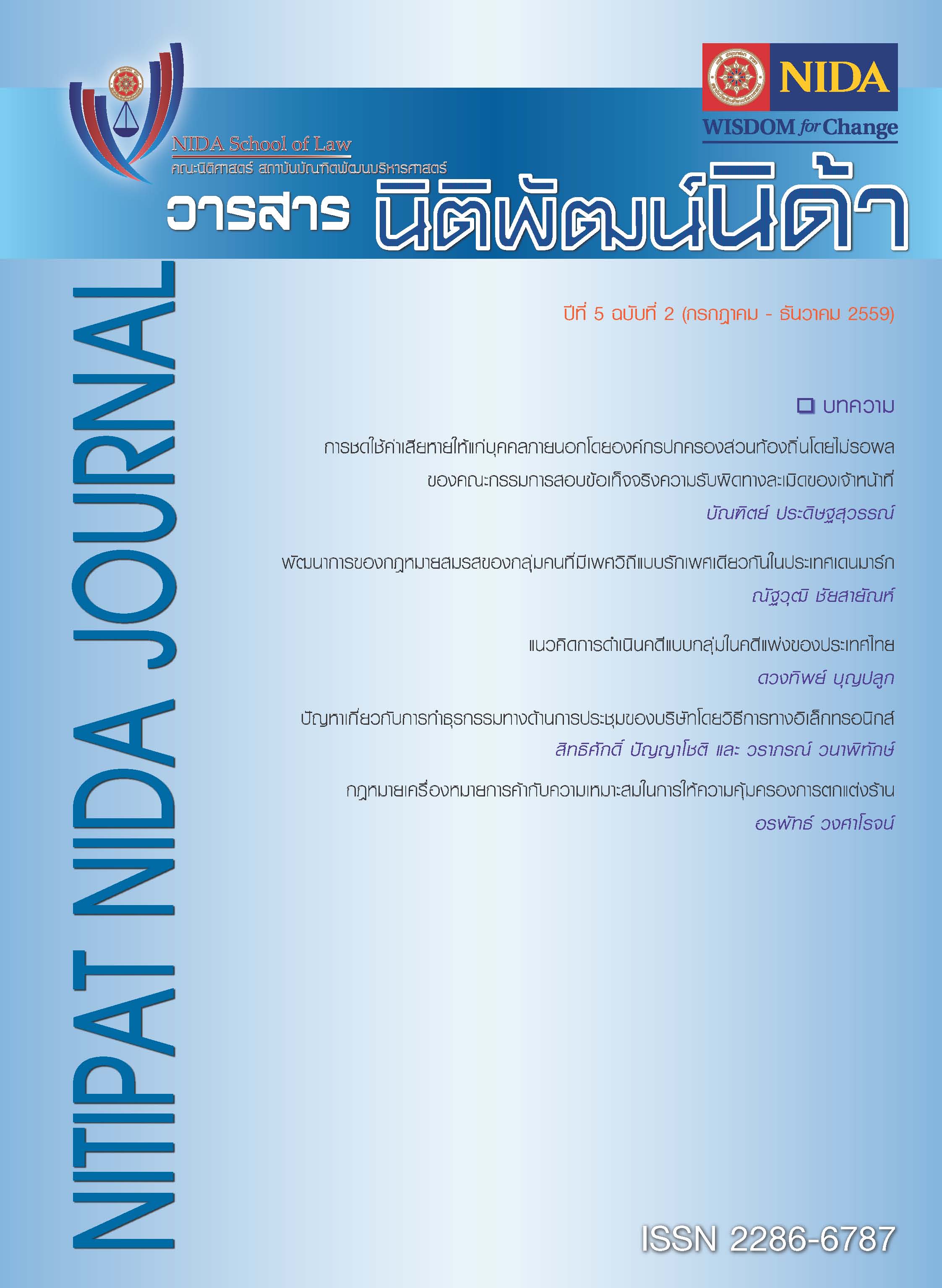Recent Trends on the Use of Analogy or Analogical Reasoning between State and International Organization towards to Current Evolving the Law of International Institution : Criticism Analysis on Theoretical Assumptions Underlying the Analogy between State and International Organization by International Law Commission
Keywords:
State, International Organizations, Analogy or Analogical Reasoning, Codification and Progressive DevelopmentAbstract
The international legal system and its various rules, originates from the idea of law, which is a creation of the human mind, a rationalization relate to scientific analysis under the application of legal reasoning and argumentation for creation of applicable rules in international community that is considered very obstacles on reality to the codification and progressive development of international law : Firstly, International law is undoubtedly and can be treated as a collection of rules but it is no characteristic of ‘legal system’ since it not denotes a unitary body of legal rules, that ‘logically clear’ ‘internally consist’ ‘gapless’ and ‘coherently organized assortment of a set of elements arranged in interaction with degree of unity or cohesiveness’. Secondly, Much of international law consists of rules of customary international law frequently lacks both clarity and certainty, based on how States have behaved in the past rather than on the way in which it would be desirable for the law to develop in the future, especially international organizations, is very different characteristic from State, because of no territory, no population, and no centralized government that uses its own sovereignty. As mentioned, legal personality of State and International Organization are legal foundation criticized on application question and methodology question in adequacy of applicable law. As evidenced by many examples of forms and words in the various verses within the draft articles were extremely codificated and developed by the International Law Commission. In particular, rules relating to international customary law and general principle international law that regard to conclusion of treaties and responsibility of international organizations have adopted legal justification by analogy between states and international organizations by transplanting the word “State” to “International Organization” which occurs with the Vienna Convention on the Law of Treaties between States and International Organizations or between International Organizations in 1986 (VCLTIO) and the Draft Articles on Responsibility of International Organizations in 2011 (DARIO) that are similar the Vienna Convention on the Law of Treaties in 1969 (VCLT) and the Draft Articles on Responsibility of States for Internationally Wrongful Acts in 2001 (ARSIWA). Because of this problem, this article reflected of the role of modes of logical inference in legal argument with comparison between two objects or systems of objects that highlights respects in which they are thought to be similar propositions when being applied by filling the gap between facts and rules which must be used in general rules from comparable another cases applied by legal reasoning that the facts are similar to identified the original case to deal with the uncertainty that caused of methodological technique in international law between systemic reasoning, formal justice, and international rule of law, also forasmuch the use of analogy inference has affected logical consequences and logical techniques for identify balancing from lex lata applicable law to lex ferenda international practice in regard to international organizations.
References
Catherine Brölmann, The Institutional Veil in Public International Law : International Organisations and the Law of Treaties (Hart Publishing 2007)
Dieter Wanner, The Power of Analogy : An Essay on Historical Linguistics (Mouton de Gruyter 2006)
Esa Itkonen, Analogy as Structure and Process : Approaches in Linguistic, Cognitive Psychology, and Philosophy of Science (John Benjamins Pub. Co. 2005)
Evelyne Lagrange, La représentation institutionnelle dans l'ordre international : Une contribution à la théorie de la personnalité morale des organisations internationales (Kluwer Law International 2002)
Evelyne Lagrange, et Jean-Marc Sorel, Droit des Organisations Internationales (LGDJ 2013)
Fernando Lusa Bordin, ‘Analogy’ in Jean d’Aspremont, and Sahib Singh (eds), Concepts for International Law : Contributions to Disciplinary Thought (Edward Elgar Publishing Inc. 2019)
Fernando Lusa Bordin, ‘The Analogy between States and International Organizations : Legal Reasoning and the Development of the Law of International Organizations’ (Dissertation, Cambridge University 2014)
Finn Seyersted, Common Law of International Organizations (Martinus Nijhoff Publishers 2008)
Henry G. Schermers, and Niels M. Blokker, International Institutional Law : Unity within Diversity (5th edn, Martinus Nijhoff Publishers 2011)
Hersch Lauterpacht, Private Law Sources and Analogies of International Law : With Special Reference to International Arbitration (Longmans, Green and Co. 1927)
Jan Klabbers, An Introduction to International Institutional Law (3rd edn, Cambridge University Press 2015)
Jan Klabbers, and Åsa Wallendahl, Research Handbook on the Law of International Organizations (Edward Elgar Publishing Limited 2011)
Patrick J. Nerhot, Legal Knowledge and Analogy : Fragments of Legal Epistemology, Hermeneutics and Linguistics (Kluwer Academic Publishers 1991)
Paul Bartha, By Parallel Reasoning (Oxford University Press 2010)
Paul Reuter, Droit international public (Presses Universitaires De France 1958)
Richard Collins, The Institutional Problem in Modern International Law (Hart Publishing 2016)
Richard Collins, and Nigel D. Write, International Organizations and the Idea of Autonomy : Institutional Independence in the International Legal Order (Routledge 2011)
Sean Colye, ‘On Foundations of Legal Reasoning in International Law’ (PhD. Thesis, University of Glasgow 1998)
Viljam Engström, Constructing the Powers of International Institutions (Brill Nijhoff 2012)



